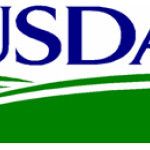- Industry: Government
- Number of terms: 41534
- Number of blossaries: 0
- Company Profile:
A type of wetland that is at the center of a shallow depression characteristic of glaciated areas in the Upper Midwest (North Dakota especially). Many potholes are wet during only a portion of the year, usually early spring. They provide important nesting habitat for migratory waterfowl, and were designated as a national priority area by the Secretary of Agriculture under the Conservation Reserve Program.
Industry:Agriculture
For statistical purposes (e.g., counting the poor population), the Census Bureau uses a set of annual income levels — the poverty thresholds — slightly different than the federal poverty guidelines. As with the poverty guidelines, they represent a federal government estimate of the point below which a household of a given size has cash income insufficient to meet minimal food and other basic needs. They were developed in the 1960s, based largely on estimates of the minimal cost of food needs, to measure changes in the poor population. The thresholds form the basis for calculating the poverty guidelines, and, like them differ by household size and are adjusted annually for overall inflation. But, they do not include different levels for Alaska and Hawaii, and include separate levels for small elderly households.
Industry:Agriculture
These are monthly or annual income amounts that are used to help determine eligibility for a number of federal food assistance and other programs. They are derived from the income poverty thresholds used by the Census Bureau in counting the number of poor persons, differ by household size, are adjusted upward for Alaska and Hawaii, are published by the Department of Health and Human Services early each spring, and are updated annually for overall inflation. For example, 130% of the income poverty guidelines is the limit for food stamp and free school lunch income eligibility. Sometimes referred to as the Office of Management and Budget (OMB) poverty guidelines.
Industry:Agriculture
A quantitative limit on the amount of a commodity that can be marketed (also called a marketing quota) under the provisions of a permanent law. Once a common feature of price support programs, this supply control mechanism now only restricts the production and/or sale of tobacco and peanuts.
Industry:Agriculture
P.L. 85-172 (August 28, 1957), as amended by the Wholesome Poultry Products Act of 1968 (P.L. 90-492, August 18, 1968), requires USDA to inspect all "domesticated birds" when slaughtered and processed into products for human consumption. The USDA has defined, by regulation, domesticated birds as chickens, turkeys, ducks, geese, and guineas. The primary goals of the law are to prevent adulterated or misbranded poultry and products from being sold as food, and to ensure that poultry and poultry products are slaughtered and processed under sanitary conditions. These requirements also apply to products produced and sold within states as well as to imports, which must be inspected under equivalent foreign standards.
Industry:Agriculture
As used in the meat and poultry inspection program, the phrase refers to the inspection that Food Safety Inspection Service inspectors are required to conduct of all animal carcasses immediately after they are killed.
Industry:Agriculture
Refers to activities in the food and fiber sector that occur after agricultural products are sold from, or leave, the farm or ranch. In total, about 75% of the retail cost of the market basket of foods is added in postharvest activities.
Industry:Agriculture
This price is calculated for wheat and feed grains for each county by the Farm Service Agency. The PCP reflects changes in prices in major terminal grain markets (of which there are 18 in the country), corrected for the cost of transporting grain from the county to the terminal. It is utilized under the marketing loan repayment provisions and loan deficiency payment provisions of the wheat and feed grains commodity programs. Rice and cotton use an adjusted world price as the proxy for local market prices.
Industry:Agriculture
One of the major cuts of the hog carcass that, when cured, becomes bacon. Futures contracts for pork bellies are traded in the futures market.
Industry:Agriculture
